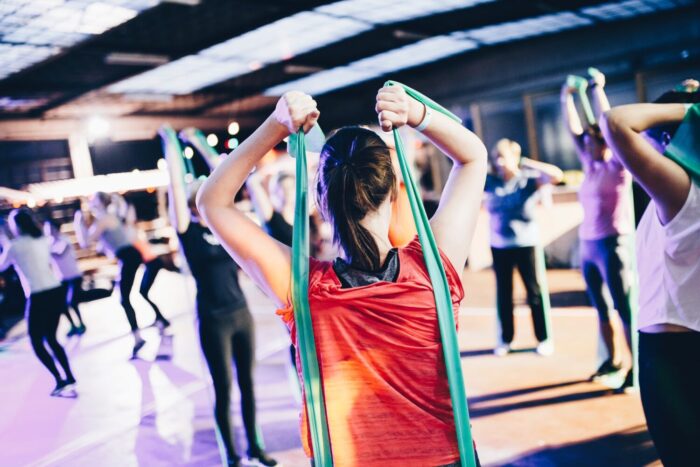Physical activity has been shown to have several benefits for both individuals and society as a whole. It can help maintain overall health, improve cognitive function, and promote social interaction. These benefits extend to language learning as well. Physical activity can enhance language learning by increasing the amount of oxygenated blood that reaches the brain. This increased oxygenation helps improve cognitive function, focus, and memory recall. If you’re looking for a way to improve your language skills through online courses, try AmazingTalker.
The importance of physical activity for language learning
Physical activity is beneficial for many aspects of our lives. It is essential for keeping healthy and reducing the risk of conditions such as heart disease, stroke, obesity, and type II diabetes. The benefits of physical activity also extend to learning the language. Physical activity has been shown to improve cognitive function, including memory and attention skills. It can help improve fluency and comprehension by strengthening the brain’s neural connections. Studies have found that even just 30 minutes of moderate-intensity aerobic exercise per week can significantly improve language learning ability. So if you want to learn a new language effectively, get plenty of activities!
Benefits of physical activity on learners

Source: unsplash.com
Physical activity is an important part of language learning. When you are active, your brain releases endorphins, which are happy hormones that make you feel good. When you are learning a new language, this type of positive reinforcement can help to improve your memory and comprehension. Including activity of online sources is best. This tool helps you to engage in learning new languages and provide online English tutors at the same time. These online platforms also provide online English tutors, online Korean tutors, online Italian tutors and you can even take Math courses with professional Maths tutors.
Physical activity has been shown to benefit learners, including improving cognitive function, reducing stress levels, and promoting overall physical health. These benefits are especially beneficial for students who are struggling with language skills.
One study found that physically active students scored higher on tests of verbal ability than those who were inactive. The study also found that the more active the student was, the better their oral skills. This is likely because being physically active helps to increase blood flow and oxygen to the brain.
Tips to get more physical activity for students, parents, and teachers
- Getting more physical activity into your routine can benefit your language learning, including better focus and concentration, improved memory recall, and problem-solving skills.
- Tips for students include finding enjoyable ways to get active, making sure to mix up the types of activities you do, and scheduling regular breaks throughout the day to allow your body to rest and rejuvenate.
- Parents can help their children get active by setting a good example, encouraging them to be physically active outside of school hours, and providing accessible equipment such as bikes or skates.
- Teachers should prioritize ensuring that all students have access to appropriate exercise equipment in the classroom, encourage movement during class time through games or drills, and provide clear instructions on how best to use these tools.
How Sport Can Help Learning Languages Faster

Source: unsplash.com
Sports offer a variety of benefits for language learners, including improved focus and concentration, better communication skills, and strengthened social networks. In addition, sports can help improve overall physical health, which can, in turn, lead to better language learning. Here are some specific ways that sports can help with language learning:
1) Sports can help improve focus and concentration. When students engage in an active activity, their minds are more focused, and they don’t get distracted by outside stimuli. This is especially important for young learners who are more easily distracted by extraneous noise or movement.
2) Sports can help develop better communication skills. As students learn how to express themselves orally and in writing during sports activities, they also know how to do so effectively in other settings. This is especially helpful when speaking another language away from home or at work.
Study Shows Engaging in Sports Enhances Vocabulary Development

Source: unsplash.com
Sports activities can enhance language learning by providing a forum for practice and vocabulary reinforcement. A study published in the journal “Learning and Instruction” found that students who engaged in sports scored higher on vocabulary tests than those who did not engage in sports. The researchers attributed this difference to the increased opportunities for word learning that accompany athletic activities.
The study participants were divided into two groups: one played a team sport regularly, while the other either did not play a team sport or only participated sporadically. After six months, the students who had engaged in team sports showed significant improvement on vocabulary tests compared to their peers who had not been involved in sports. They also showed better memory recall for words related to sport. The results of this study underscore the importance of including language learning opportunities within sporting activities.
Incorporating Diverse Physical Activities in Language Learning
Physical activities like cycling, skating, and running aren’t just great for physical health; they’re also powerful tools in enhancing language learning. These activities stimulate the brain in unique ways, contributing to improved language skills.
When you ride a bicycle, skate, or run, your body is not only engaged in physical exertion but also in balancing, navigation, and spatial awareness. These actions require a level of focus and cognitive functioning that complements language learning. For those interested in incorporating skating into their routine, check skates.co.uk.
They offer a variety of equipment to get started, seamlessly integrating this physical activity into your language-learning journey. Incorporating these activities into your language learning routine can thus be a fun and effective strategy. Not only do they keep your body healthy, but they also provide a dynamic and engaging way to enhance your language learning experience.
Conclusion
In conclusion, sports offer numerous benefits for physical activity and language learning. They help promote healthy living, build teamwork skills, and improve communication. Students who participate in sports also learn to set goals and stay disciplined. Because sports are so fun, they can also be a valuable tool for learning languages.
Finally, parents and educators can encourage students to participate in sports by providing the necessary equipment and supporting their efforts. If you’re someone who enjoys spending time outside, try out some of the platforms and see for yourself if it can help you improve your language learning.
